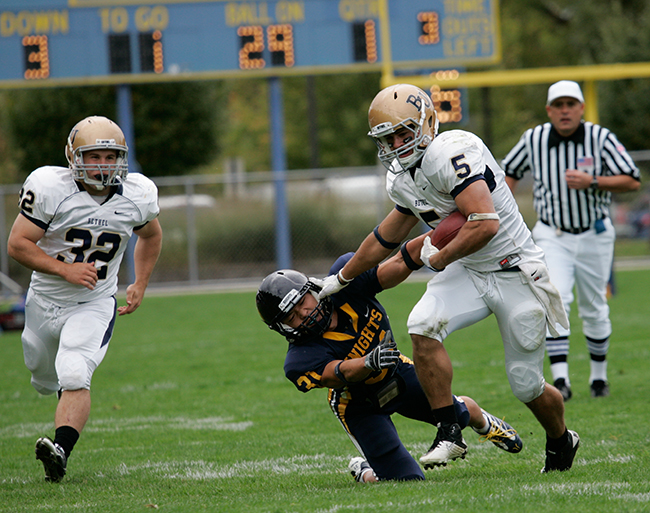“Concussion - The Movie,” But Real Life

By Devi Nampiaparampil, MD, MS (“Doctor Devi”)
Concussion, a true story set at the intersection of spirituality, science and sports, highlights one man’s fight to tell the truth. Dr. Bennett Omalu, played by Will Smith, is the forensic pathologist who autopsied football legend, “Iron Mike” Webster and discovered a pattern of brain abnormalities he would later name “chronic traumatic encephalopathy (CTE).”
To prepare for his role, Smith did extensive research and even watched five autopsies—the first one performed by Omalu. At a private screening at the AMC Lincoln Square in New York, the actor noted, “Every human being needs to see an autopsy... the complete dismantling of a human body... It turned into a spiritual experience for me... Everything that makes up a person was all still there except the thing that actually makes a person. Except the soul, except that energy, the battery, the life force. Even though everything was still there, it was completely gone... I started to look at people differently. My mind started to accept the separation between a person’s body and the person.”
According to Smith, Omalu, a devout Catholic from Nigeria, didn’t draw a distinction between science and spirituality. “He sees himself as the last one who sees this person to the after life. He’s delivering souls to Heaven.”
Although Concussion is loaded with medical information, the science never overpowers the individual struggle. After Omalu determined playing football could potentially cause permanent brain injury, he informed the NFL. He expected a positive response for his discovery but received the opposite. “[It’s] that brilliant beautiful combination of genius level intellect with the naivete,” Smith explained, “It’s almost hard for those two things to exist on that level... He couldn’t even conceive of the idea that the NFL didn’t want to know.” “What [Omalu] wanted was to be accepted as an American.” Smith recounted. “To be the guy who discovers the disease that players get in ‘America’s game’ is such a beautiful conflict.”
The film is a compilation of information - on traumatic encephalopathy - accumulated over the past two decades by Omalu, Dr. Julian Bailes, played by Alec Baldwin in the film, and the medical researchers they inspired. I place myself in that category. While working for the Department of Veterans Affairs in 2008, treating wounded soldiers returning from Iraq and Afghanistan, I found a link between traumatic brain injury and the development of chronic pain. At one point, I hesitated. These findings could turn more people against the war. I feared the federal government might try to suppress my work. Many of us have experienced that moment of pause - including Omalu and Smith.
“I was born and raised in Philly with my Philadelphia Eagles,” Smith joked. “I was like, ‘I don’t want to be the guy to have to make this movie.’ My son played football for four years and I was worried about him breaking his leg… I was concerned about spinal injury and I absolutely positively had no idea that there was a possibility for long-term brain damage. That was the thing that really pushed me over... People have to know the truth. They can decide what they want but they have to know.”

Devi E. Nampiaparampil, MD, MS
Director, Metropolis Pain Medicine PLLC
Clinical Associate Professor, NYU School of Medicine
Medical Contributor, Fox 5 NY
347-424-4996
www.doctordevi.com



